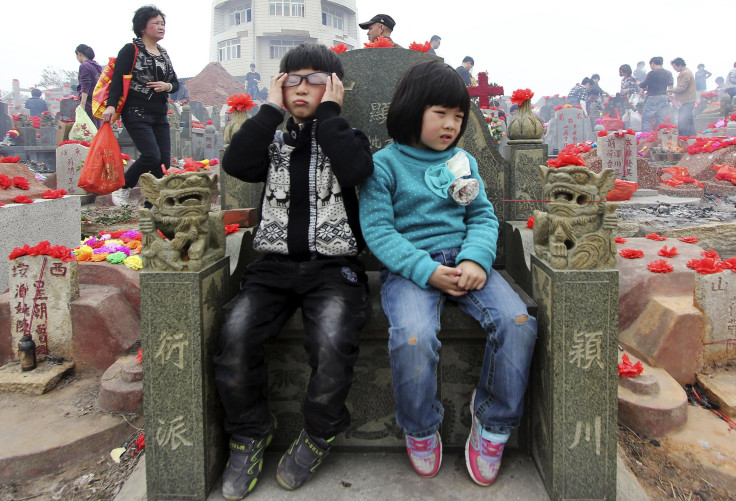
Chinese officials announced today that they’re changing the One-Child policy. Its defenders say that the decades-long approach to population control helped the country develop. But whatever the economic implications of the policy, it had some really unexpected social and moral consequences. Here are just a of few of the most bizarre outcomes that resulted from the most successful government birth control policy ever implemented. The least “crazy problem” is the reason why the policy was reversed this week, according to an announcement from the Chinese Communist Party: an aging population is causing China to resuscitate its population growth, so produce more young workers to support old retirees.
For a bit more history on the topic, you can check out our other article, China’s One Child Policy: What It Was And Why It Ended.
1) Forced abortions : the central government probably didn’t order women to get abortions directly. However, the Communist regime issued abortion quotas by region, pressuring local officials. While they sometimes convinced women to abort through positive incentives like cash grants, many pregnancies were terminated forcefully and wantonly at the whim of Chinese authorities.
2) Selective abortions of female fetuses: Demographers' abstract goals concerning China’s perceived population needs clased with China’s patriarchal culture which values sons over daughters. Given only one chance at a child, many families aborted female fetuses until they had a son. This practice was banned, but expectant parents found ways around the law.
3) Gender imbalance: The consequence of selective abortion? Total gender imbalance. Today, China has about 120-140 men for every 100 woman.
“We are talking about between 20 million and 30 million young men who are not going to be able to find a wife. That creates social problems and that creates a huge number of people who are frustrated,” Steve Tsang, a professor of contemporary Chinese studies at the University of Nottingham told the Guardian this week.
4) “Mail-order” brides, kidnapping: Those young men didn’t give up on their dream of a family, often resorting to methods as ethically questionable as policies that caused their predicament. Human trafficking “matchmakers” still “import” brides into rural China from neighboring countries like Vietnam, Cambodia and Myanmar.
5) No siblings: After a few generations, that meant no aunts or uncles, either. Not having siblings created all kinds of unforeseen problems. Many China watchers say that only children became spoiled. And they also bore the pressure of having to provide for their parents and grandparents.
6) Suicides by parents who lose their only child . There are around 1 million families in China that have buried their only child. Earlier this year, I profiled MoJia Shen, a fellow alum of the United World Colleges, for our alma mater’s alumni magazine. MoJia, now a social entrepreneur living in Mexico, grew up in China and has two Only-Child cousins who died as teenagers.
Both of those families faced a tragic intersection of government policy, economic realities and social norms. In the article, I highlight her effort backed by the Clinton Initiative to tackle psychological suffering among parents in her home town, which lies a few hours east of Beijing. Here’s an excerpt from that article.
The death of a child would be tragic anywhere, but China’s one-child policy compounds the tribulation.
“It’s not only their son, it’s their social security,” MoJia says. “Who’s going to take care of them when they grow older?”
Chinese parents feel an overwhelming combination of guilt, economic doom, and loss of purpose. They avoid family events where discussions are dominated by the question, “How are your kids?” The resulting isolation occurs at the time when they need the most support. MoJia says that her aunt and uncle moved to another city and were never heard from again.
© 2025 Latin Times. All rights reserved. Do not reproduce without permission.




